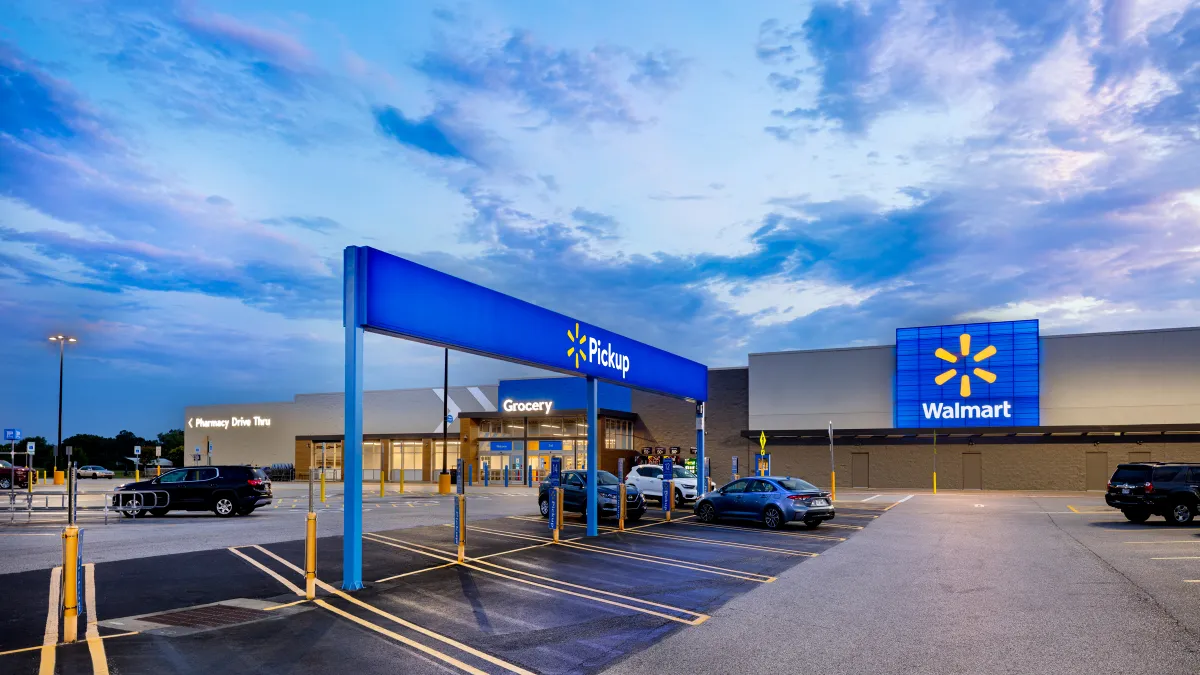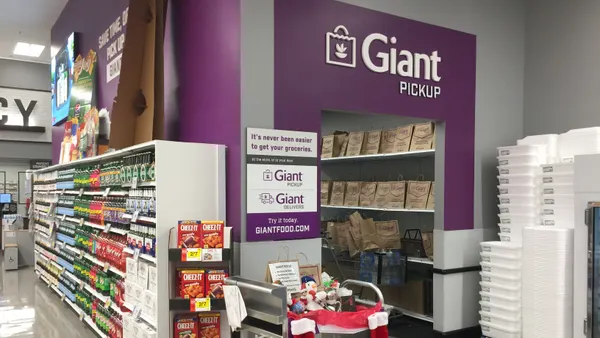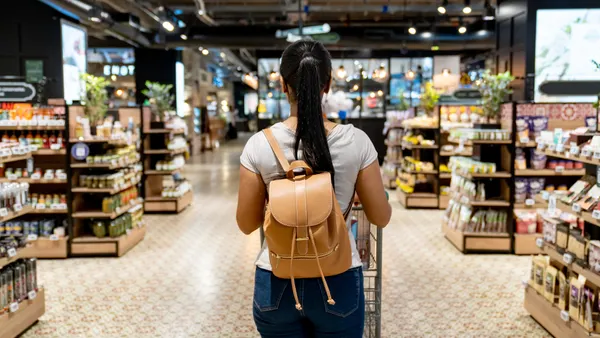Dive Brief:
- Private labels have increasingly taken up space on both Target and Walmart shelves during the pandemic, and now a report from Profitero shared with Retail Dive indicates that they're taking up space on the first page and top five slots of retailer search results too.
- Target has the highest share of private labels in page one search results, with Walmart and Amazon holding less share. Target's private label food and beverage products occupy close to a third (27%) of organic and paid page one search results, while that number changes to 21% for cleaning supplies, and 17% for health and beauty.
- Target's private label options in those categories also hold the largest share in organic search results, each comprising more than a third of the top five organic search results. Meanwhile, Walmart's private label health and beauty, and cleaning supply products make up 20.6% and 25.2% of the top five organic search results, respectively.
Dive Insight:
Profitero's findings point to intensifying competition between private label products and national brands vying for a share in shoppers' search results. Since the COVID-19 pandemic began, private brand sales increased by 29%, and regular brand product sales grew by 24%, according to Nielsen statistics cited in the report.
However, even though both private label and national brands have seen a bump in sales during the coronavirus pandemic, securing the top spots within search results can make or break product sales. The report found that 70% of purchases occur on page one search results, and being moved to the first page from the second page can result in a 50% sales bump.
During the pandemic, both Walmart and Target worked to elevate their private label offerings. Last month Target rolled out Favorite Day, its new private label food and beverage line centered on snacks and sweet treats, in its stores and online. In the fall, the retailer added premium products to its Good & Gather line, which is now a $2 billion brand.
Meanwhile, Walmart enlisted fashion designer Brandon Maxwell in March to serve as creative director of Free Assembly, which the retailer released in September, and Scoop. Last summer, Walmart refreshed its private label wine, Winemakers Selection, with a new label, pared-down assortment and lowered price point.
Retailers in other sectors have also doubled down on private labels. For example, Bed Bath & Beyond has focused on private label housewares as part of its larger turnaround strategy.
For now, private label brands only bring in a fraction of sales for retailers, but research suggests that consumers are becoming less loyal to certain brands. Per research from Kerry and Nielsen IQ, private-label products only make up 4% of all grocery e-commerce sales, but their share has increased fourfold during the past two years. And according to research from Alix Partners cited in the report, one-fourth of consumers tried a private label brand for the first time during the pandemic and about 30% of them said they planned to continue using those products.














